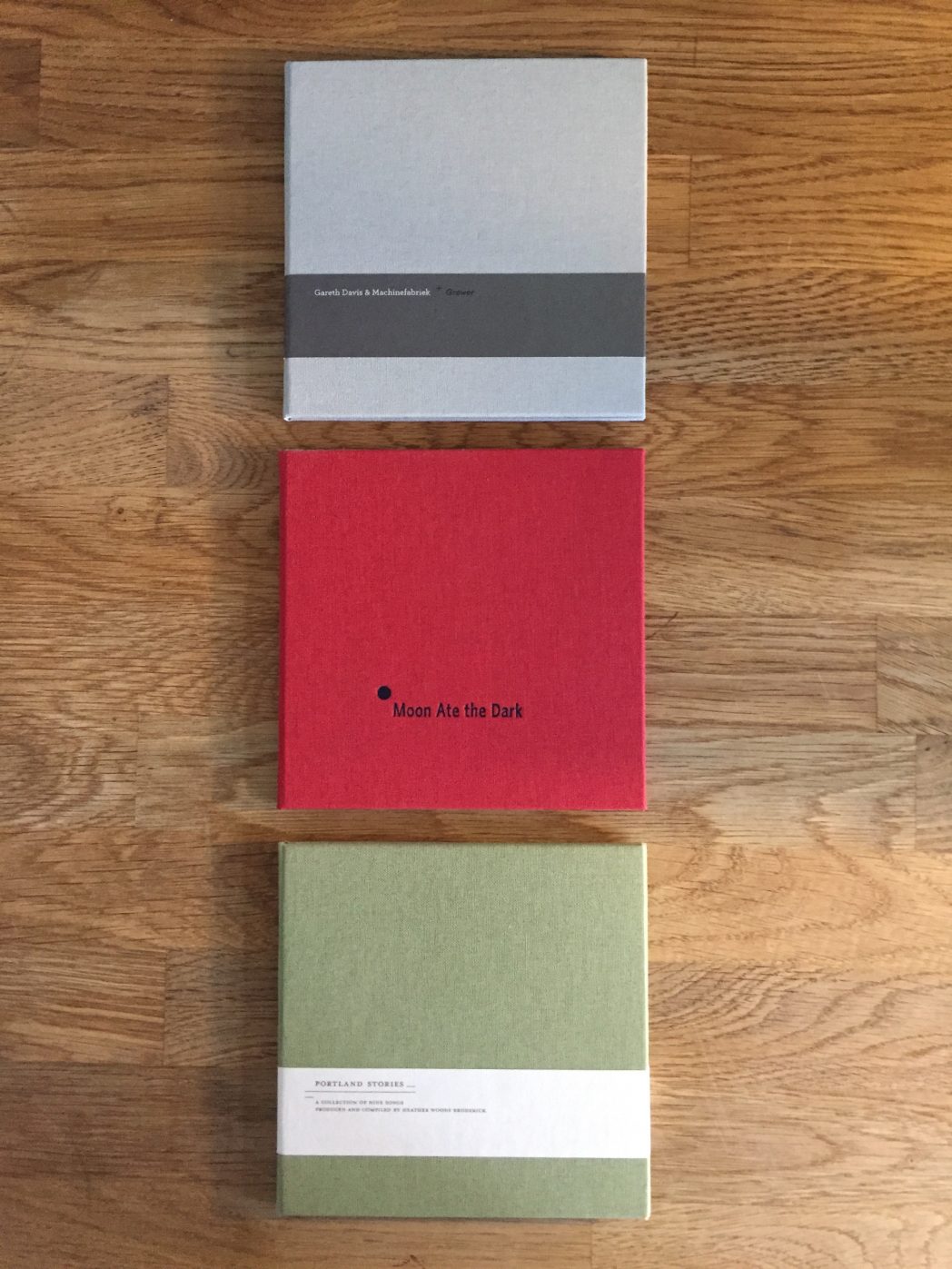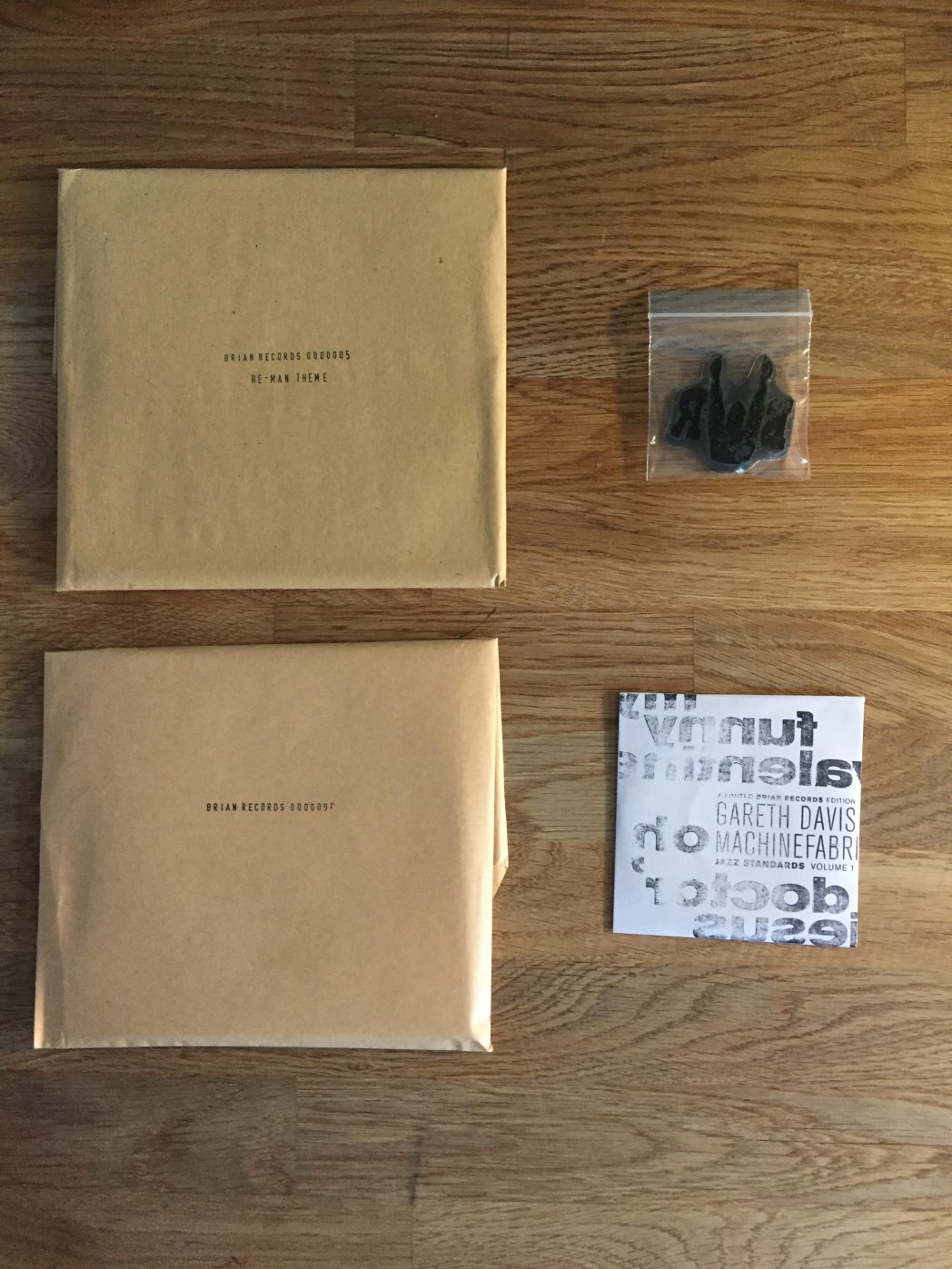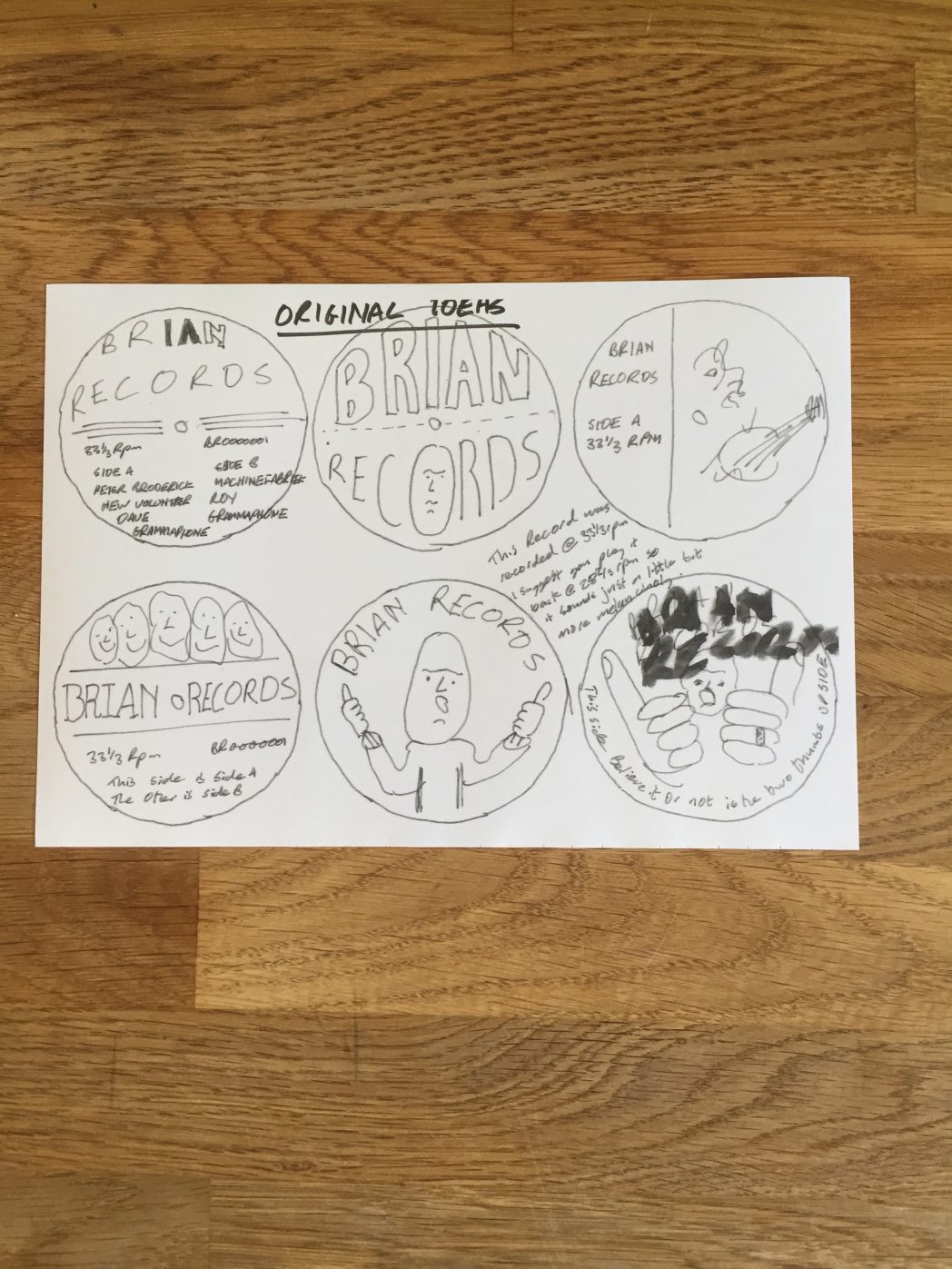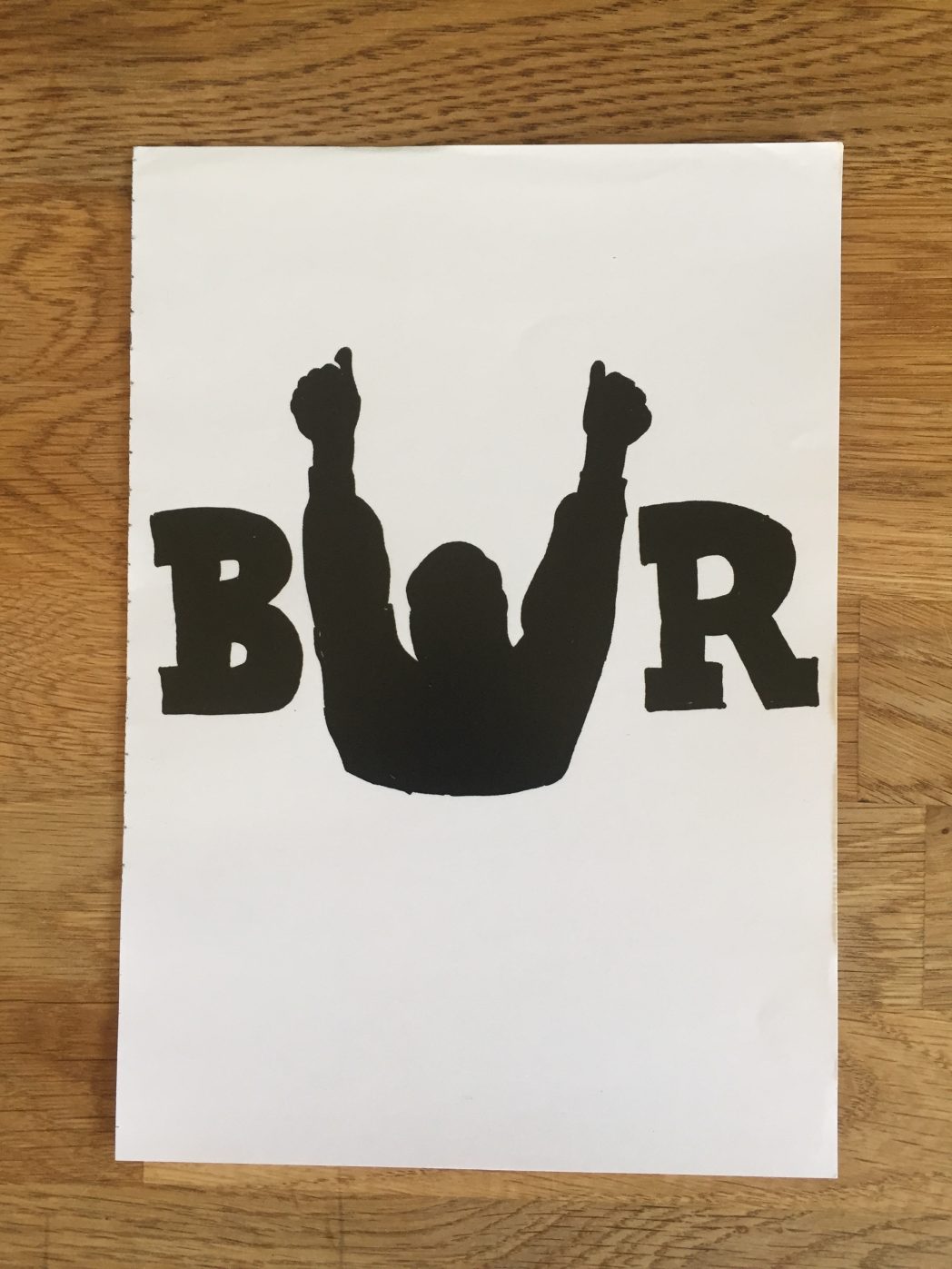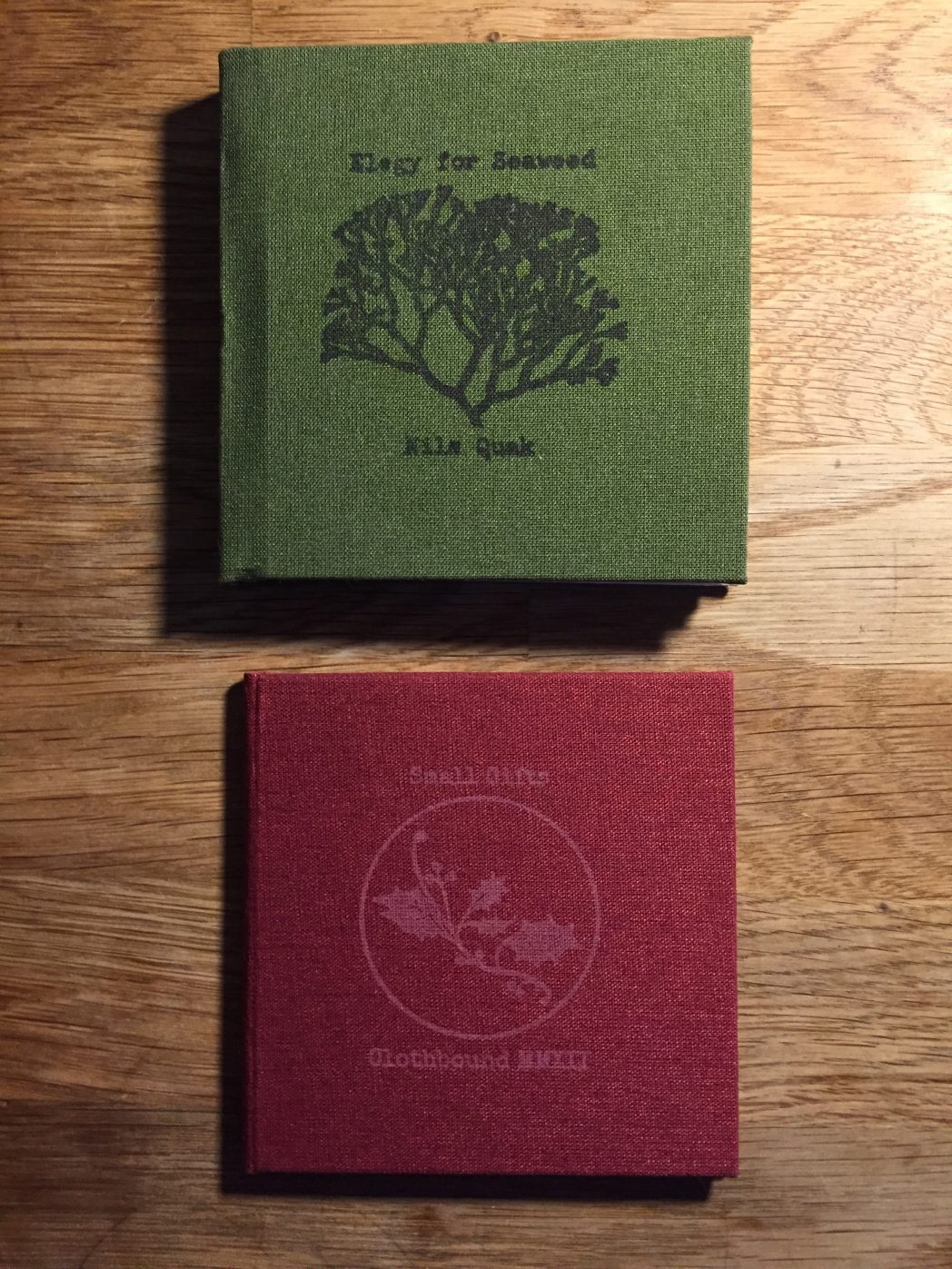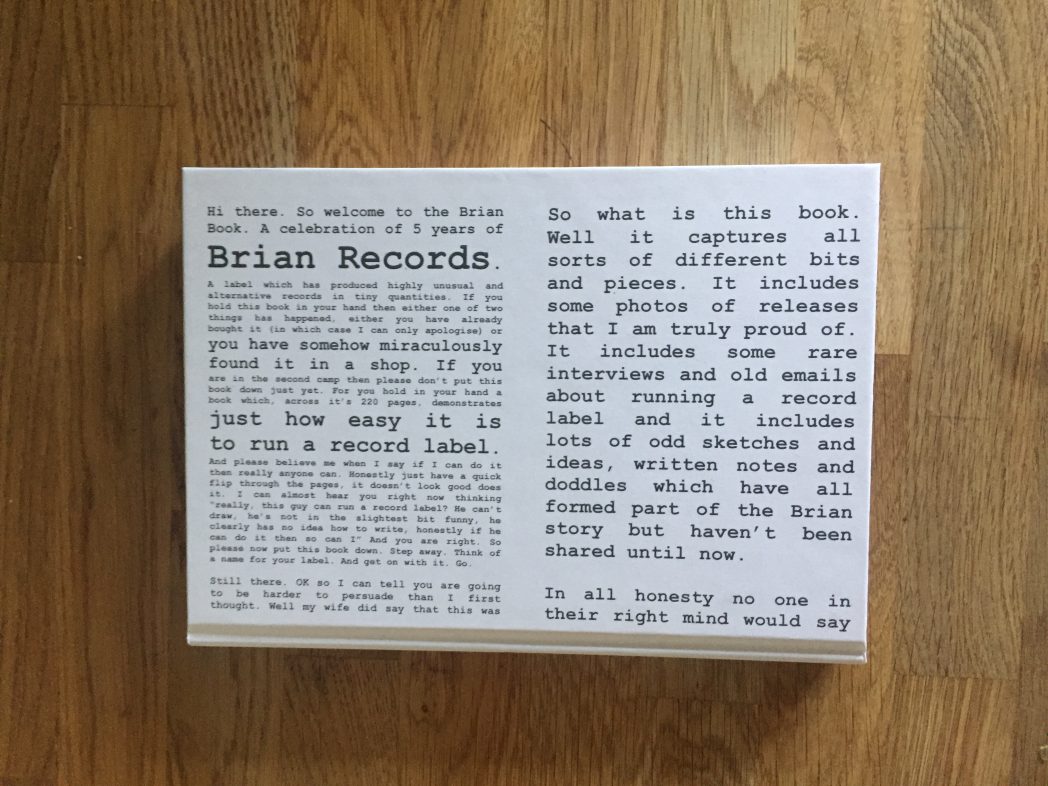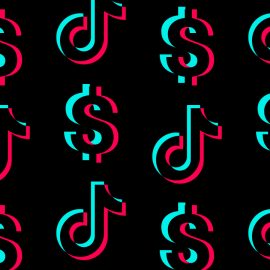Editors Note: The following is a excerpt from James Norman‘s upcoming book, titled Micro Record Label: A love letter for music fans; a how-to for the hopeless; a light-hearted, humorous, self-deprecating detour for the uninterested. Norman, who runs a label called Brian Records, which released music by Nils Frahm, Peter Broderick, Clem Leek and more, has already finished all of the text and is currently running a Kickstarter campaign looking for more backers to raise the funds for printing and binding. Take a look and see if you’d like to contribute. Meanwhile, James and I agreed on giving you a preview of one of the chapters from the book (with more to come!), because, well, these words are worth sharing with the world. Republished with permission of the author. Enjoy!
Chapter 2
Identity
I remember exactly where I was when it happened. I was stood in the back of HMV in Bath looking through the records when something caught my eye. As a stinky teenager who was going for the homeless chic look and heavily into heavy metal I still don’t know why I decided to reach up and look at the record let alone buy it, but buy it I did. The record I am referring to was (sadly the repress of) Headz a compilation released on Mowax. This moment was important for me. It was the first time I entered into the world of obsessing over labels rather than bands. It was a transition into a new kind of music obsession. For the next 10 years I would check the new release and Mowax section of every record shop I ever entered. I didn’t buy everything, I just couldn’t afford it, but I bought a lot. And I would check out every release. I would make the walk up to the counter, ask for the record, and self-consciously drop the needle on those records purely based on the label.
I don’t know what it was about the label but I loved it. Maybe it was the name, or the logo, or the curation of the music. Maybe I thought it made me, the least cool boy at school, look slightly more cool. Maybe I was buying into a brand and a new lifestyle of baggy jeans and instrumental hip hop.
From this point on my approach to music changed. I still collected and obsessed over bands (as you’ll notice looking through these pages). But I also started obsessing over labels. The big ones for me were:
Moving Shadow – Who released some great drum and bass
Skint – Especially the early stuff which all came in the same 12” sleeve.
Twisted Nerve – Who in many ways laid down the foundation for what I think a micro label should be. I used to buy almost everything they did and started collecting the weird stuff, promo CDs which were lofi packaged. I love that stuff.
Lex Records – Who produced the most amazing and playful CD sleeves over a number of years.
So over the course of the next few pages we will look briefly at the identity of your label. Its story, name, logo and USP.
So what is your label’s thing?
This is important. Really really important. So don’t rush. Take your time. Find a nice coffee shop. Maybe buy a journal. For you need to go on a journey of discovery. You need to ask what is the thingness about your label. You know its thing. Its mission statement except you’re not on a mission. You know its raison d’etre its purpose, its soul, its reason for existence, its eternal destiny, its …
Look I may have gone too far. Let me try again.
For my label its thing is “home baked records”. When you buy one of my records it won’t feel like it came out of a production line. It won’t feel produced and it won’t feel like a team of marketing people were involved. In fact you’ll wonder if anyone with an ounce of commercial sense was involved. At its best it is like my wife’s flapjack. Every batch is different yet they always taste sublime. Like the best flapjack you ever ate. Those small intimate details that you get when someone really cares and takes time over making them. Also like my wife’s flapjack the records are homemade. So many of the elements are stuff you find about the house (or stationery shop). Envelopes. A3 paper folded into sleeves. Poster paint. Hand stamped logos and words. That’s my thing (I think, although now I read it it seems a little generic).
So what’s your thing?
Is it the style of music?
Or your location?
Or the format?
Is it a political statement?
Or some artistic commentary?
Or are you using your label for the good of the planet?
You don’t need to go on retreat or attend some mindfulness workshop but it is useful to know what you are doing and why.
[Note: It is not possible for your thing to be ‘to sell lots of records’ or ‘get famous’ or ‘make loads of money’ because if it were then you’re not running a micro label, you’re running an indie record label which is fine but I just thought it would be helpful to clarify (of course when I say fine let’s face it every real music fan knows that if you sell more than 200 of anything you are a sell-out making mainstream garbage!)]
Name
So my son is doing Romeo and Juliet for GCSE and my parents really sweetly took him and me to Stratford to see the Royal Shakespeare Company version. It was surprisingly good. I was expecting I’m not sure what. Baz Lurman perhaps. Instead it was played out in a stark staging with just a simple cold concrete block as a prop. There was blood and guts and accents from across the UK. It was fantastic. Anyway no idea why I’m telling you this.
So a name.
You need to pick one.
Something great like
Subpop
Or twisted nerve
Or mowax
Or nuclear blast
Or cotton goods
Or Brian Records
You know, the greats.
A name should do a few things.
1. It should be different. Which is hard. But it’s confusing if you have to keep saying Sony but not the other Sony.
2. It should be easy to remember. So when you have a drunken chat with someone they can recall it in the morning.
3. It should be long lasting. Avoid anything that might embarrass you 10 years down the line. Anal discharge may sound great now but try explaining it to your kids.
4. This one seems silly but can be helpful. Try to find something that achieves 1-3 but you can sign up to twitter, gmail or a website without having to pay loads of money.
5. If possible link it to your thing.
6. Be proud of it.
7. But don’t sweat it. What’s in a name after all? It’s the label that counts.
Logo
This is a tricky one. Only because for some people logos are a big deal. And for others they really don’t matter. I grew up drawing logos on my pencil case. Mowax, twisted nerve, wutang. I had them nailed. I can still draw them now from memory (although it’s been a while so I may need a couple of goes). So for me the logo is pretty darn important. I spent a while developing it and it went through a few iterations. However lots of the micro labels I love either don’t have a logo or I don’t recall it.
So you have a choice. You can develop a logo, or not. It’s up to you.
However it’s worth pointing out that unlike indie record labels who have 1000’s of fans and want to spread their message of musical peace, you will probably have 25 fans spread out across the globe so your logo will not be some ubiquitous symbol of cool. In fact only a handful of people will know about it.
This is actually pretty freeing because it doesn’t matter if it’s right or wrong. So if you do want a logo go for it, but design it for you. Choose something you like. Something you might wear on a t-shirt or badge.
I don’t think I am qualified to tell you how to design a logo but here are a few things that might be helpful:
1. Make it monotone. On body printing can be costly so it needs to look good in just black (or white).
2. Make it simple. Can you draw it in 5 seconds. Not essential but if you ever choose to hand draw your logo on a number of releases (say 50) you will definitely be grateful.
3. Make it bold. If you plan on making stamps of prints the fine detail will be quickly lost.
4. Is it recognisable as a tiny square? This will help with the internet if you want people to use quick links on their phone and all that jazz. It may be that for this you use one element of your logo rather than the whole thing.
5. Don’t pay a professional to design it for you! Honestly, if you will enjoy designing a logo – do it yourself. If not – choose not to have one.
USP
Many years ago I gave a talk to a handful of people on how to run a micro record label. It was a fun night and I would happily do it again. Anyway at the event my friend Clem Leek came and played a set, which was awesome, and he also helped me out with the Q and A. He started talking about Brian Records USP. To my shame I had no idea what he was talking about so I asked him. Apparently USP stands for Unique Selling Point, but you knew that anyway.
I don’t think the word unique is actually very helpful. I am sure if you are running a tape only label that only uses found sounds and packages all releases in recycled condoms, you will probably find that there is another label that is doing exactly the same thing (or maybe not in this case). The one truly unique thing about your label is you. So let your personality shine (or hide it away if you prefer).
I do think it is helpful to think about what is different about what you do. And this works in two directions. The obvious one is when selling your releases. A 5” record is a rare thing and will stand out. A tape release packaged in a recycled wardrobe and limited to the amount of wood available is a rare thing. This will pique the interest of the buyer. It’s the one liner on a website that will get someone to look (and listen) to the release.
However possibly more important, is why will releasing with you be a unique or at least different experience for the artist involved? The question is particularly important if you are approaching an established artist who normally releases hundreds or even thousands of records. Why work with you to make a release of just 25? Once you are more established this may be easier to answer. They may know what you do and be keen to collaborate. But when you start out this can be a tough sell. So what will be special about the release? What is the story? Maybe this partly comes back to your thing. Maybe the format places restrictions or constraints which they find interesting (e.g. a 5” record can only hold 2 minutes of music a side) you need to think about their perspective. Again a lot of this may just come down to you. Your personality. Your love of music. Your love of their music. But it’s also helpful to think about your USP.
Story
So over time your micro record label will start to write its own story. It will take time to grow. Don’t rush it. It will take a few years. There will be a few defining moments. But with some nurturing. Some reflection it will happen.
If you are just starting a label, if you haven’t yet thought of a name then don’t worry too much about your story. But I would suggest taking time to keep a record of what you do. Take photos, make films, save emails. Anything that might later be part of your story, take time to record it.
If you have been running a label for a few years then maybe it’s time to write that story. I have done it twice.
First I created a very DiY crocodile clip bound book of the origins of Brian. It contained early doodles (some of which feature here). I took time pulling it together, sorting through all the crap to try and make meaning of the first three years.
The second time was for the five year anniversary release where I made the Brian Box (still the high water mark for Brian releases in terms of the number of crazy formats and bits of paper shoved into one release). The box contained a 220 page book. Unlike this carefully edited and well planned book that you currently hold (joke, obviously) this was a 220 page scrap book covering the first 21 releases of Brian. It contained old emails, newsletters, reviews, drawings, unused concepts and pictures of mountains of tapes. The story of the label was told by marking up the pages in red pen. It was a blast to make and in many ways, has led to this book.
You of course don’t need to write books to take time to reflect on your label’s story, you could create a 3 hour biopic movie, or flipbook, or, you know, just have some words that resonate with other people. But when people ask you what you do at dinner parties you can now choose. You can either tell them about your boring day job or you can tell them you are the CEO of a record label. Of course, it then helps if you are prepared to answer all their obvious follow on questions with some great stories. Like the time you tried to send rare exotic dried pressed flowers through the post and got arrested for breaching importation laws. Or the time you released a record by Thom Yorke. Or the time you were interviewed by the BBC.
